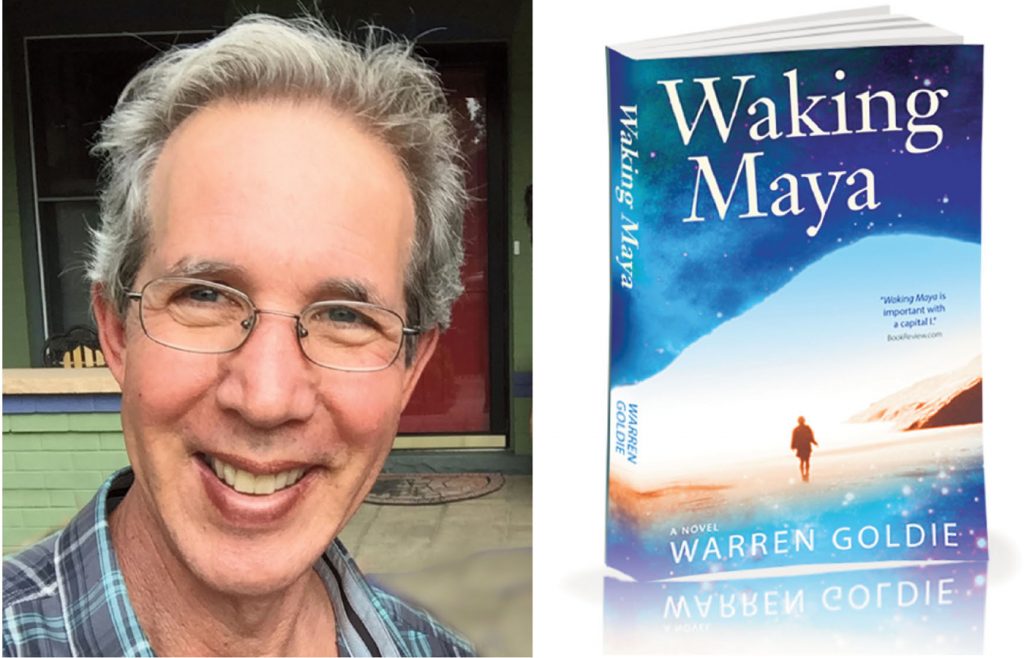
Warren Goldie’s novel, Waking Maya, tells the story of a college-age girl named Maya Burke who stumbles upon a journal written by her long-disappeared father and ends up trying to save the world in a unique, New Agey way. The book is thought provoking in that the reader wonders if Goldie’s metaphysical theories actually describe the underlying reality of the world, and if humanity can actually be affected in ways similar to how the protagonist succeeds.
For example, one idea he explores is that physical reality, including the events of one’s life, is created by each individual unconsciously—meaning that no event is random and things don’t just “happen” to you. He claims that deeper, unseen forces are at work. And further, that there is purpose everywhere, even if you can’t see it, such as when things appear to make no sense at all or are painful.
The plot follows Maya’s search for her father, which takes her out of the suburbs, across the country, and ultimately into a hidden world of energy vortexes, synchronicities, secret government spying programs, and a spiritual community in the Rocky Mountains that is trying to change the world by influencing humankind’s “collective unconscious.” Maya is on a kind of hero’s quest, and comes of age as she is called upon to find her inner strength through the dangers she faces. The book has similarities to The Celestine Prophecy and Way of the Peaceful Warrior.
Mystical experiences of transformation occur in several places, such as when Maya looks out a window and recognizes a landscape that had appeared to her in a dreamlike vision, which hints at a far deeper story:
Entranced, she gripped the window pane tightly, as if to keep herself from being sucked out into something immense and primeval, a plan set in motion in ancient times that dwarfed her puny little life the way the sun outshines a light bulb. Something was happening to her. It was a feeling of separation, of falling away, of moving beyond the familiar toward the mysterious. . . .
Her father’s journal, which is excerpted throughout, presciently guides Maya on her travels. Most importantly, it warns of disruptive earth changes looming, but diverges from the usual doomsday-type prophecy:
The physical shaking of the Earth merely symbolizes change. Not geological change, but internal change. Change in people. The world will be “disturbed,” life as we understand it will “cease to be.” Physical reality as a whole is a metaphor for that which is internal. The true definition of apocalypse is revelation.
As Maya’s adventure unfolds, she gets closer and closer to discovering the truth about both her father and the global change he predicted. When the ending comes, it is so satisfying and unique that it leaves the reader wanting to learn more about the energy of the earth, the knowledge of ancient peoples, the power of group consciousness, and the ability of a single individual to make a difference in the world.
The only drawbacks are that the author could have gone deeper into the esoteric knowledge that he introduces. As a reader, I found myself wanting to know more. Also, Maya sometimes seems to be propelled by destiny rather than desire.
This novel has a unique, life-affirming, metaphysical tale to tell, which is unusual in today’s literature. It is ideal for people who want a good revelation and want to learn as they are entertained. I can see a Hollywood movie in this book’s future—it could be a blockbuster.
To order on Amazon: Waking Maya
For more information, see WakingMaya.com.
